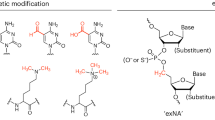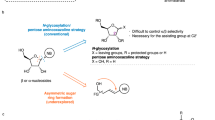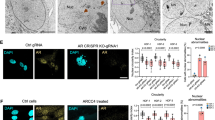Abstract
REIS1–4 has demonstrated the presence of a phosphatase in various tissues specifically hydrolysing 5-nucleotides, for example, adenosine-5-phosphate. One of us has previously reported5 that normal blood serum has a low 5-nucleotidase activity corresponding to about 1/10 of its non-specific alkaline phosphatase activity towards glycerophosphate. In bone diseases where serum alkaline phosphatase is raised, serum 5-nucleotidase may be normal; but in jaundice, either infective or obstructive, both enzyme levels may be increased, those of the 5-nucleotidase sometimes exceeding those of the non-specific alkaline phosphatase.
This is a preview of subscription content, access via your institution
Access options
Subscribe to this journal
Receive 51 print issues and online access
$199.00 per year
only $3.90 per issue
Buy this article
- Purchase on SpringerLink
- Instant access to the full article PDF.
USD 39.95
Prices may be subject to local taxes which are calculated during checkout
Similar content being viewed by others
References
Reis, J., Bull. Soc. Chim. Biol., 16, 385 (1934).
Reis, J., Bull. Soc. Chim. Biol., 22, 36 (1940).
Reis, J., Biochem. J., 46, xxi (1950).
Reis, J., Biochem. J., 48, 548 (1951).
Dixon, T. F., Biochem. J., 50, xxxii (1952).
Author information
Authors and Affiliations
Rights and permissions
About this article
Cite this article
DIXON, T., PURDOM, M. Serum 5-Nucleotidase. Nature 170, 500–501 (1952). https://doi.org/10.1038/170500a0
Issue date:
DOI: https://doi.org/10.1038/170500a0



